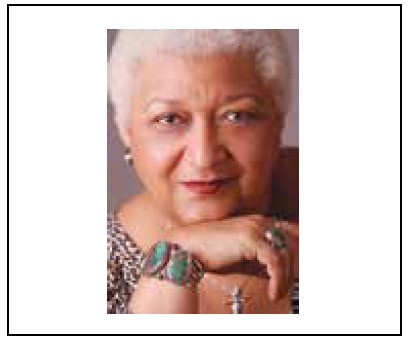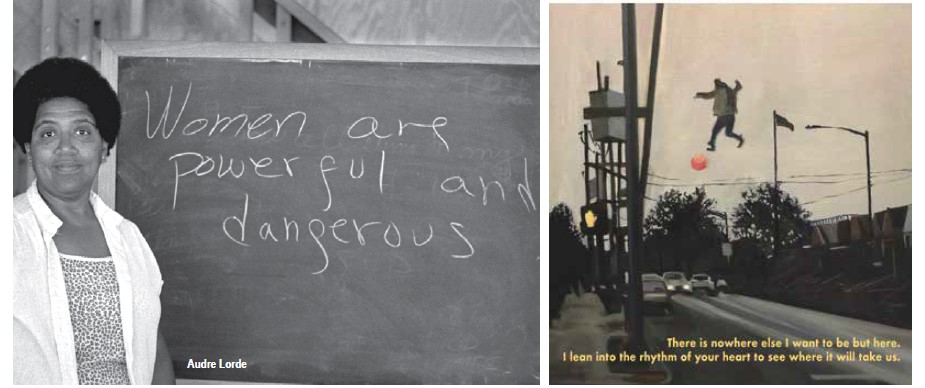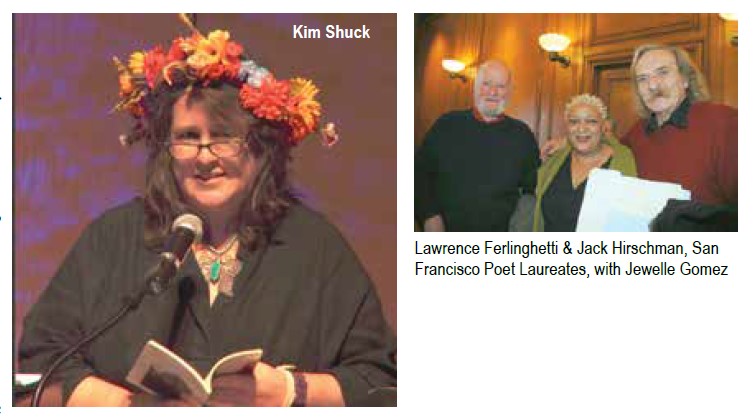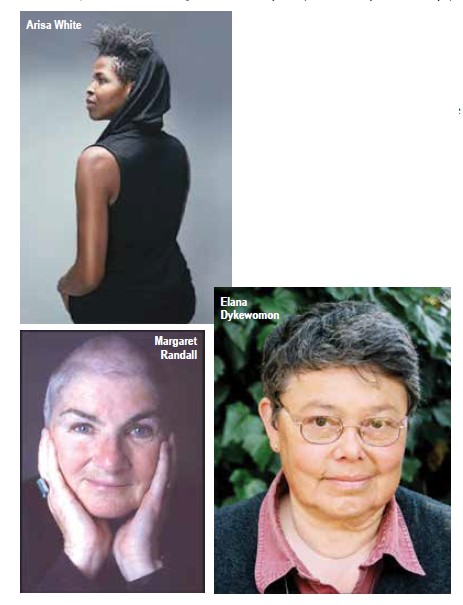
By Jewelle Gomez–
“I think that I shall never see/A poem as lovely as a tree.” What a strange way to enter the world of poetry, but that poem was at the top of the teaching list when I was in elementary school and is the first poem I can remember encountering. That doesn’t count my great grandmother’s periodic recitation of Longfellow’s 19th century ballade “The Wreck of the Hesperus,” another oddity from childhood.
I loved the rhyme and simplicity of a poem about the importance of trees, but had my doubts about the poem’s accuracy … especially its ending: “Poems are made by fools like me/But only God can make a tree.”
Even at a young age I was less invested in a “God’s” abilities and more committed to the philosophical value of nature’s ability to create trees. I was further thrown by the poet’s need to declare himself a “fool.” You can tell that poem bugged me—60 years later I still find it annoying. I was doubly irritated because the author’s name was Joyce Kilmer, making me feel disloyal because I thought the author was a woman! NOT!

Since then, I’ve discovered any number of female and lesbian poets who have infinitely better takes on the natural world and more, fulfilling my need for a female poetic voice. Inaugural poet, Amanda Gorman, reminded me to revisit Sonia Sanchez, Ntozake Shange, June Jordan, Marilyn Hacker, Cheryl Clarke; all opened, angered, and soothed me. At the end of National Poetry Month, I reiterate my belief that poetry is the one of the signposts we have for survival. And they are out there in the open—seditious and charming.
Sometimes, before you even get to the poem, the title captures a deeply profound and necessary idea, as in Margaret Randall’s “From so Many Rooms Has a House but One Roof.” If there is any social/political concept more important today, I’m not sure what it is.
(https://www.bkwrks.com/times-language)
Audre Lorde was the poet laureate of New York State when she passed away in 1992 and always reminded people of her identity: “a poet, warrior, mother, lesbian.” “When we speak/we are afraid our words/will not be heard nor welcomed./But when we are silent, we are still afraid.” That’s still a significant lesson for women who are traditionally educated not to speak on any number of topics from money to domestic violence.
( https://tinyurl.com/tpancnrt )

Not all trees wring adoration from us. Arisa White, a longtime Bay Area poet, writes: “I see too much sky between your branches, and where I was, I see too much trauma in your lashes.” Her new book, Who’s Your Daddy, is a heartbreaking, lyrical multi genre collection that is just out and will give us much to consider as the pandemic winds down (we hope).
( https://tinyurl.com/w8yktnay )
Oakland poet, novelist, and playwright Elana Dykewomon has been writing so long that even her conversation sounds like poetry: “Almost every woman I have ever met has a secret belief that she is just on the edge of madness, that there is some deep, crazy part within her, that she must be on guard constantly against ‘losing control’—of her temper, of her appetite, of her sexuality, of her feelings, of her ambition, of her secret fantasies, of her mind.”
( https://tinyurl.com/yv7jv72s )
Last year’s San Francisco Poet Laureate, Kim Shuck (Cherokee), wrote: “… Some of you think that you get a vote don’t/Understand the difference between education and/Entertainment, why would you?” Also a bead worker and weaver, she often speaks in her poems to both the natural and social elements that cannot evade her sharp vision.
( https://tinyurl.com/5asfmun7 )

I had the joy of sitting on the San Francisco Poet Laureate committee for several years in the previous century and so I got to meet and read the widest array of local writers, famous and not famous. Each manuscript reminded me of how precious poetic expression is to all of us. Short or long, professionally perfected or not, all of us benefit from those urgent, personal words flung into the heavens and into our hearts.
Ultimately the most important idea to remember is that, as Audre said, “Poetry is not a luxury.”
Jewelle Gomez is a lesbian/feminist activist, novelist, poet, and playwright. She’s written for “The Advocate,” “Ms. Magazine,” “Black Scholar,” “The San Francisco Chronicle,” “The New York Times,” and “The Village Voice.” Follow her on Instagram and Twitter @VampyreVamp
Published on April 22, 2021
Recent Comments